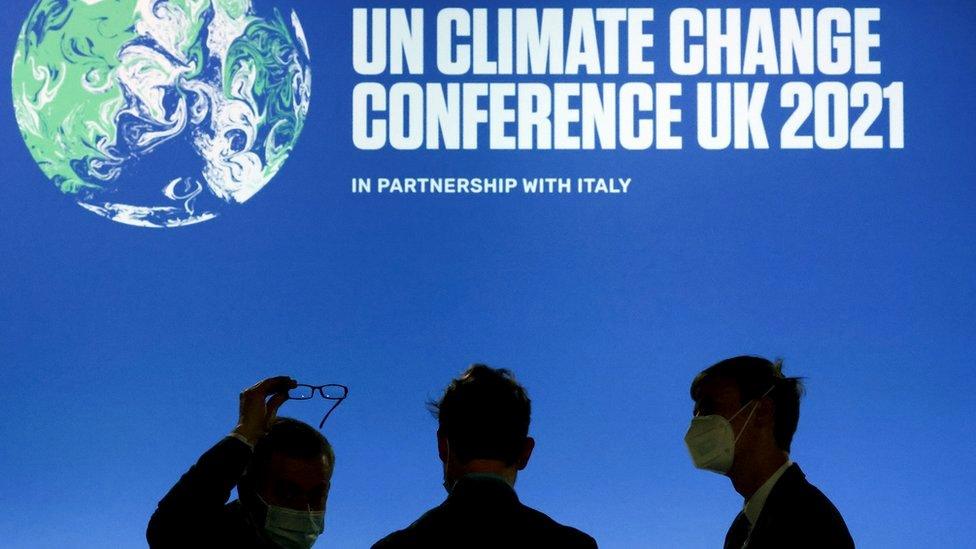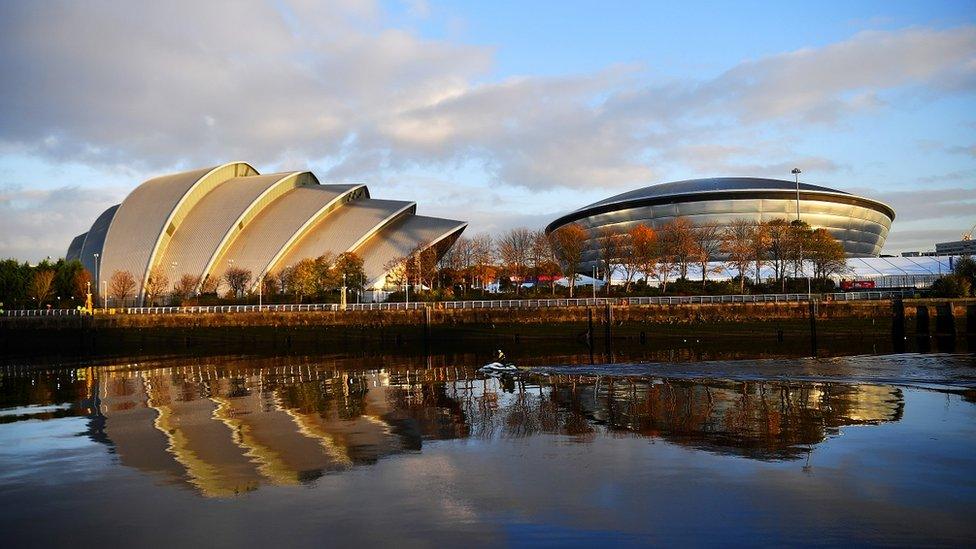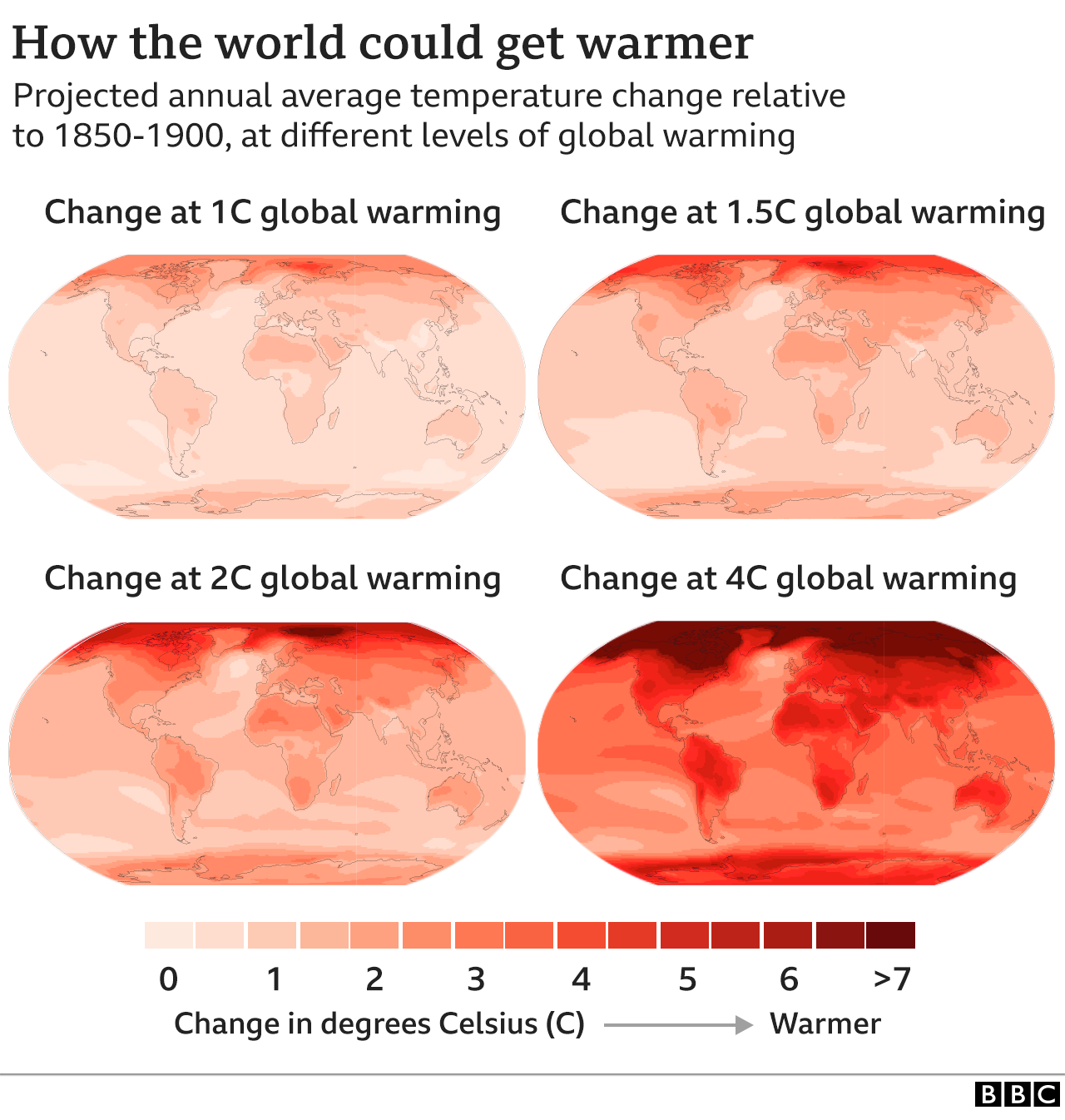Horse trading set to begin over agreement at COP26
- Published

The UK presidency team have set out an ambitious stall in their first attempt to capture progress here at COP26.
As well as the specific items mentioned in the document, it also gives us a sense of how the negotiations are going more generally.
It's clear that there's a sense of urgency, and a willingness to go high on the key question of cutting carbon more rapidly.
If this idea survives the next couple of days, then Glasgow may well be seen as a success.
But there's a long way to go until the final gavel comes down.
The idea of getting countries to come back more regularly started with the most vulnerable nations.
This meeting floated the idea of countries coming back with new plans every year - and this draft nods to that by asking everyone to come back next year with a new nationally determined contribution (NDC), which outlines their pledges to cut greenhouse gas emissions.
But there are some interesting wrinkles in that request.

Parties are urged to come back in 2022 with plans that "align with the Paris temperature goal".
Which one do they mean - 1.5C or 2C?
That will need clarifying in the hours and days ahead.
The UK have attempted to copper-fasten the idea of rapid improvement in national plans by asking all countries to attend a high-level ministerial meeting on climate change every year.
They've also asked the UN Secretary-General to convene a world leaders meeting in 2023, just ahead of a global stock-take, which will examine how countries are performing on restricting emissions.
That all sounds like a nice day out for presidents and prime ministers, but doesn't commit them to do anything.
There is also some quite progressive language in this draft decision that will hearten campaigners, specifically the mention of coal.
According to seasoned observer this is the first mention of the "c" word in a UN climate change document.
However, before everyone gets carried away, the give and take nature of the drafting process means that there is no end date given, meaning it is an aspiration and not a timeline.
The same paragraph also mentions the phasing out of fossil fuel subsidies, but there's no specific mention of oil and gas.
Is that to try and keep Saudi Arabia, Russia and other major producers on board?
There is some nice language on doubling the amount of finance given for adaptation.
But there's no baseline against which to measure the increase and no timeline for delivery.
The issue of loss and damage finally gets its own significant section in the draft decision. This is the idea that rich nations bear a historical responsibility for global warming and should compensate poorer ones for the harms visited on them.
Its inclusion will hearten many developing nations, which have been asking for a clear financial commitment to tackle the impacts of climate change that they can't adapt to. However, the document is very woolly on this question.
Now that the UK has played its main negotiating card, much will likely change over the next two days of hardball negotiations.

There will be pressure from countries like Saudi Arabia, Russia, China and India to water down the idea of coming back next year with a new plan.
Strangely there are many developing nations who might also oppose this - the time, effort and costs associated with a new NDC should not be underestimated.
Developing nations will also seek more clarity on two key issues.
They will want a strengthening of the language around finance so that a new goal for 2025 represents a significant increase on the much derided $100bn.
They will also want to see a stronger emphasis on spending up to half that money on adaptation.
The other question is over the loss and damage issue.
Right now, the UN's response to this amounts to a single website for countries affected.
Emerging economies will want to see this strengthened in the draft decision, with a new secretariat dedicated to the question - and most importantly a separate stream of funding.
The serious horse trading has already started.
Matt McGrath has been covering climate change for the past 15 years, reporting from 10 COPs along the way. You can follow him on Twitter @mattmcgrathbbc, external.



